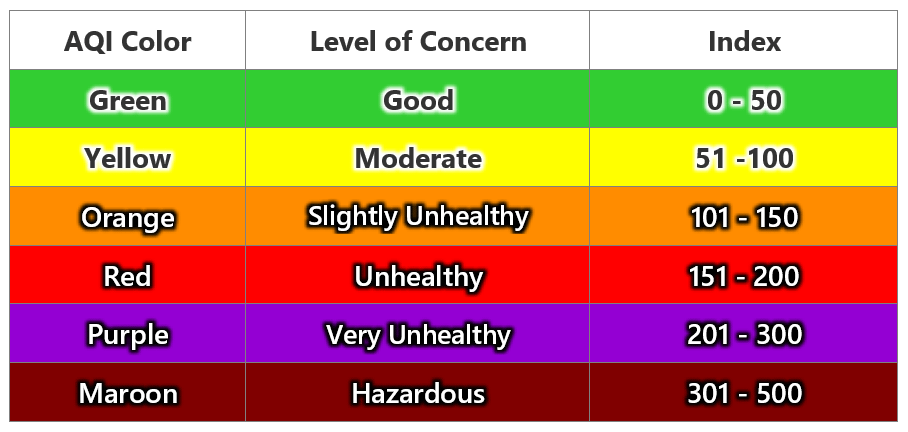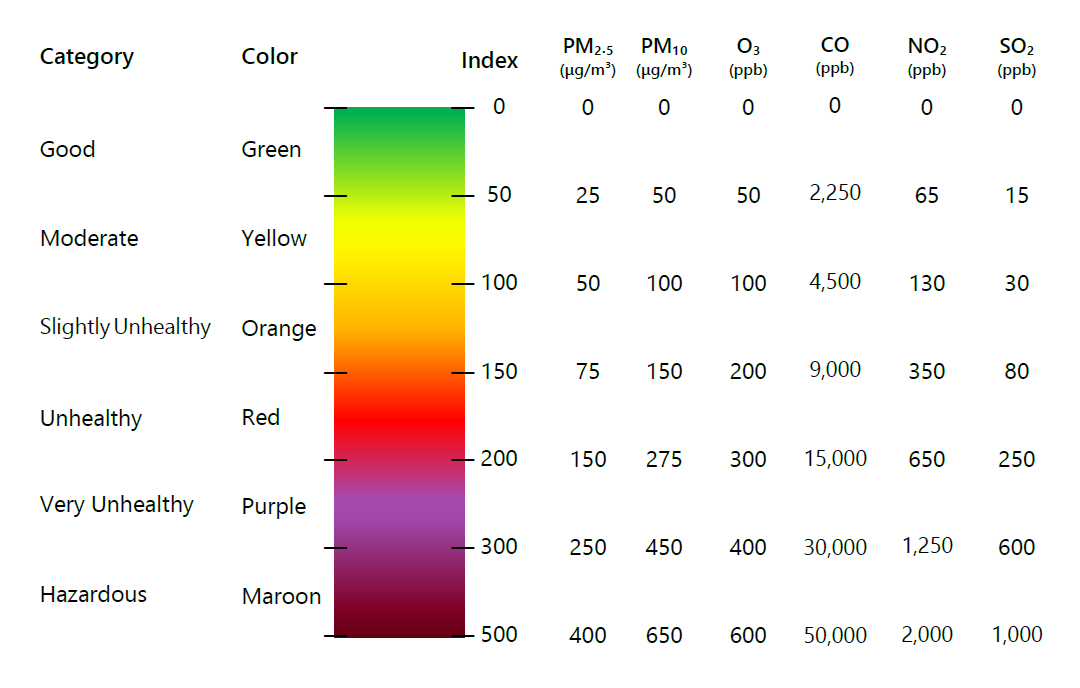Ambient Air Quality Monitoring
Ambient air monitoring is the systematic, long-term assessment of pollutant levels by measuring the quantity and types of certain pollutants in the surrounding, outdoor air.
Ambient air monitoring is an integral part of an effective air quality management system. Reasons to collect such data include to:
Air Quality Index (AQI) is a scientific information that calculated based on the extract quality of the ambiant air to keep the public aware on the air that they breathe and its interrelationship with the human health.
Air Quality Index (AQI) is a tool to showcase air quality status. It transforms complex air quality data of various pollutants into a single number and colour. AQI has six categories of air quality.
These are:
Each of these categories is decided based on ambient concentration values of air pollutants and their likely health impacts. As the AQI increases, an increasingly large percentage of the population is likely to experience health effects.


